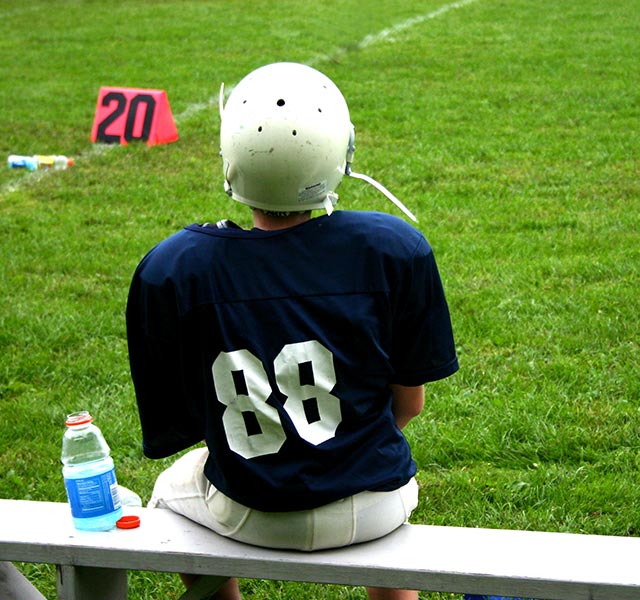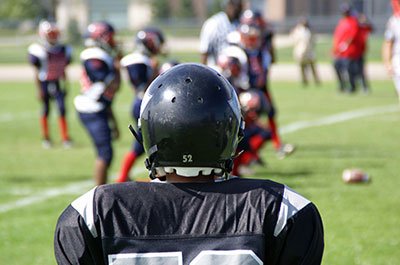A head trauma can have the potential of impacting your health in serious ways beyond the initial injury. But can a concussion put you at risk for neurodegenerative diseases like Parkinson’s disease (PD)? The answer may not be that straightforward.
"Research suggests that even a single traumatic brain injury (TBI), especially one causing loss of consciousness, can increase the risk of developing Parkinson’s disease later in life by up to 50%,” says Isaac Goldszer, M.D., a neurologist at Henry Ford Health. “The link is tied to the disruption of dopamine-producing neurons, which are central to Parkinson’s pathology.”
Here, Dr. Goldszer highlights the potential risks of brain damage related to head injuries and the importance of following strict concussion protocols.
How Head Injuries Impact Brain Health
If you have a brain injury early in life while your brain is still developing, it could have a greater impact on your brain health compared to if you sustain the injury later in life. Severe brain trauma can have devastating effects at any age.
When you think of more severe head injuries, you may think of chronic traumatic encephalopathy (CTE), a degenerative brain disease brought on by repeated head traumas, most notably among professional athletes. In the past few years, awareness around this condition has helped bring greater focus to concussion protocols and understanding around why protecting your brain is so important.
“Both head injuries and Parkinson’s involve abnormal protein accumulation (tau protein tangles from TBIs and alpha-synuclein clumps in Parkinson’s),” says Dr. Goldszer. “Scientist are exploring how these might interact, offering a fascinating overlap between acute injury and chronic disease.”
It is possible for people who will eventually develop PD to have early onset symptoms that may result in a fall or head injury. So, it doesn’t mean that sustaining a head injury will necessarily cause PD, but that injury could be related to the natural progression of the disease. If you have had a head trauma, being evaluated by a neurologist right away is necessary to assess your injury and look for any signs of neurological damage.
How Neurologists Evaluate Concussions
Concussions are the most common type of head trauma people are likely to experience. Whether you are an athlete or not, getting hit in the head or hitting your head on something is enough to cause serious injury to your brain.
“The brain in complicated,” says Dr. Goldszer. “Even if you don’t see damage like bleeding or bruising, patients can still have a mild TBI or a concussion.”
When a neurologist evaluates a patient for a concussion, they follow strict protocols to assess symptoms, monitor any health changes and prevent related injuries.
Commonly reported concussion symptoms include:

- Headache
- Vision changes including blurred vision or visual auras
- Cognitive changes and short-term memory loss
- Vertigo
While these symptoms are expected to improve gradually, your provider will continue to monitor you until they do.
In some cases, additional symptoms may occur. These symptoms are more neurological and may require cognitive enhancement medications to help treat. Be sure to let your provider know if you experience these symptoms after a head trauma:
- Frequent headaches
- Brain fog
- Fatigue
If you are experiencing persistent symptoms or loss of consciousness related to a concussion or head trauma, call 911.
Reducing Your Risk Of Cognitive Damage From Head Injuries
The best way to prevent a concussion is to avoid head trauma in the first place. However, sports like football, hockey and cheerleading carry inherent risk that even helmets and concussion protocols cannot eliminate completely.
“If you’ve already had several head injuries as the result of a sport, it is worth considering how these injuries could affect you in the future,” says Dr. Goldszer. “Do what you can to take precautions against future injury and talk with your doctor about your risk for cognitive changes.”
Reviewed by Dr. Isaac Goldszer, a neurologist who sees patients at Henry Ford Hospital, Henry Ford West Bloomfield Hospital Clinics and Henry Ford Medical Center - Bloomfield Twp.



